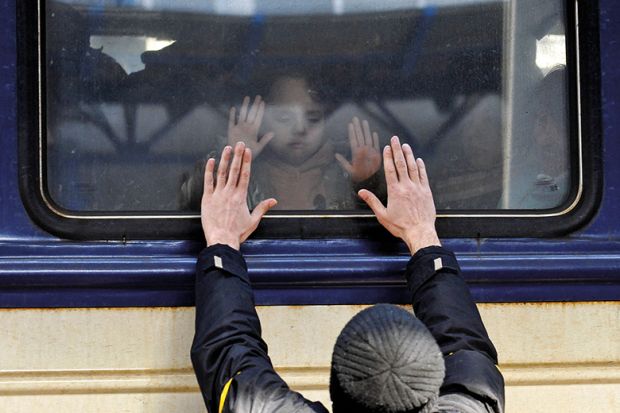Waiting to cross the road on a recent trip to our London office, I was struck by two things: the first was that, for the first time in a long time, the number of people in the street felt back to normal; the second was that the five black cabs that drove past as I waited at the lights were all electric.
Like those ubiquitous e-scooters, the replacement of chugging diesel taxis with a new generation of quietly humming successors has happened while we were all working from home. Which is hardly revelation of the century, but did provoke a thought: that change is often a long time coming, but when it happens it can happen fast.
The world feels a bit like that at the moment. Who two years ago would have foreseen the changes to our collective circumstances triggered by a pandemic?
Who again really believed that the ebbing away of the Omicron wave would see such a return to “normality”, however long it may last, after all those false dawns?
And, as we swap one existential threat for another, who could have anticipated the cataclysmic impact of Russia’s invasion of Ukraine?
At the start of January, I asked various people to predict the single issue that would dominate 2022 from the perspective of UK universities, and with what now feels like grinding inevitability, their best efforts were quickly overtaken by horrific events.
The headline on that editorial was “Be ready for anything”, but we were not ready for this.
Past certainties about the world, about peace in Europe and, from a more parochial perspective, about global collaboration in science and research, have been shown not to be certain after all.
Times Higher Education has been covering all the issues as they relate to higher education since the start of the invasion, and as ever with such a fast-moving story the best way to stay abreast of events is via our website, where we have made our extensive Ukraine coverage free to read.
For those interested in the actions THE is taking as a wider business, including our approach to rankings, our chief executive Paul Howarth has published a statement setting out our position and – most important – our solidarity with Ukraine and unequivocal condemnation of Russia’s actions.
Such statements have, of course, been issued by organisations and institutions across the Western world, including in higher education.
But while commercial disengagement seems straightforward, the question of whether and how universities and science should sever ties is more nuanced, as has been reflected in the broad spectrum of responses.
In a news analysis this week, we take a deep dive into the question of whether academic and scientific boycotts work, and the many other questions that arise.
As our analysis puts it, “although all these actions have broad support, they also raise fundamental questions about international research collaboration, academic freedom and the flow of knowledge”.
Among the tangled issues at stake is what constitutes willing complicity, and when circumstances have destroyed personal and academic freedom and autonomy, including the freedom to dissent. A statement from the Russian Rectors Union supporting the war perhaps reflects both, in a country where political appointments and a lack of autonomy from the state are the norm for universities.
But as Rik van de Walle, rector of Ghent University, has said, “I cannot believe this is the sincere opinion of all rectors involved, yet at the same time we cannot accept statements like this.”
It was as recently as 2019 that a Russia-UK University Rectors Forum convened in Moscow, with representatives from 20 UK universities travelling to “address both the challenges in international collaboration in research and education, and the opportunities both countries could get from it”.
A joint statement issued at the time optimistically proclaimed that “Russia and Great Britain have had a strong history of co-operation and working together, and both now have a strong desire to continue for the benefit of the research community in both countries”.
So much has happened in the intervening period that 2019 feels like another world altogether.
The two-year Covid crisis demonstrated how powerful scientific collaboration detached from politics could be, and then Russia’s actions crushed channels of open engagement overnight.
Once again, huge change came quickly, but the destruction is not yet over – and resetting and rebuilding will take time.
Register to continue
Why register?
- Registration is free and only takes a moment
- Once registered, you can read 3 articles a month
- Sign up for our newsletter
Subscribe
Or subscribe for unlimited access to:
- Unlimited access to news, views, insights & reviews
- Digital editions
- Digital access to THE’s university and college rankings analysis
Already registered or a current subscriber?





